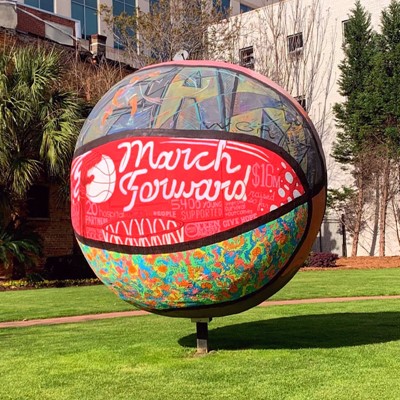
"Because what good is intellectual thought if it cannot be understood by your audience? What wrongs could come from using simpler words, besides missing the chance to momentarily inflate one's ego?"
– April S. Keyes, The Harvard Crimson
In the Executive Seminar at our school, we teach a section to help students write (and speak) in ways that are friendly to the ear. Top among our tips, whether the person is writing a speech or speaking off the cuff is this: Use the simple word.
We were thrilled when this guest editorial from The Harvard Crimson landed in our inbox this week. Writer and Harvard student April S. Keyes makes a point we've been teaching for years--and makes it beautifully (with simple words, we might add).
She's also pushed us to consider even further how words can exclude your audience. Here's why that matters for your speeches and business presentations.
Rapport should be one of your goals.
When you're presenting to a group of people, your instinct is to establish credibility and expertise. That's not wrong. But when you inflate your language in an attempt to inflate your status, you're probably heading down the wrong path. Why?
Audiences may think, "whoa this speaker must've scored big time on the SAT" or "this dude knows some fancy words." But does that earn respect? And more important, does that build rapport?
We urge speakers to look for opportunities to connect with an audience, to take themselves off the pedestal and find ways to close the divide. When we can project "we're all in this together" or "your support is important to me," we pull the audience in. We get them to invest in our message.
Rapport also speaks to human nature. When we like presenters, we're more inclined to hear them out, to consider opinions we might not agree with. So unless a person is unleashing their vocabulary on you with humorous intent, it's hard to see how big words are helping a speaker build rapport.
Ease of understanding holds audience attention.
We give this tip related to sentence length and to PowerPoint design. It applies to big words, too. When you make a message easy to understand, you make it easier to hold the audience's attention.
As presenters, we're asking the audience to do something hard: Listen and understand what we're delivering in real time. No pause button. No chance to scroll back up and re-read.
When we pepper our talks with big words and technical jargon, we're inviting the audience to be distracted. While they ponder what "sesquipedalian" means, they've stopped listening to us. We've moved on. And left them behind.
"If we want to truly commit to making ourselves and this institution more inclusive, the expectation that we use fancy words must go."
– Another on-target observation from Alicia S. Keyes in The Harvard Crimson
You speak in service to a message-and your audience.
This last idea is at the heart of everything we teach about public speaking. You speak as the servant of your message and in service to your audience.
What does that mean for your presentation? It means you put thoughts of yourself aside in order to help your audience, because your message matters to you and you want it to matter to them. You communicate in ways that are readily accessible, using language that makes complex ideas more easily understood.
Your goal is to get information or an idea across. Not to dumb it down, but to make it clear. When an idea is complex, simple words may be essential. Your audience is already grappling with a complex situation. Having to decode (and Google) your vocabulary makes it so much harder for them.
Learn more
Read our new favorite op ed, the one by Alicia S. Keyes, "Why I Don't Like Big Words" in The Harvard Crimson.
Here's our founder's take on using plain language, with a few thoughts about when a big word might be the right one.
"May the force be with you" could be the best known line from movie history. See how six tiny words have helped to create a universe and how you can use that insight to help your presentations.






